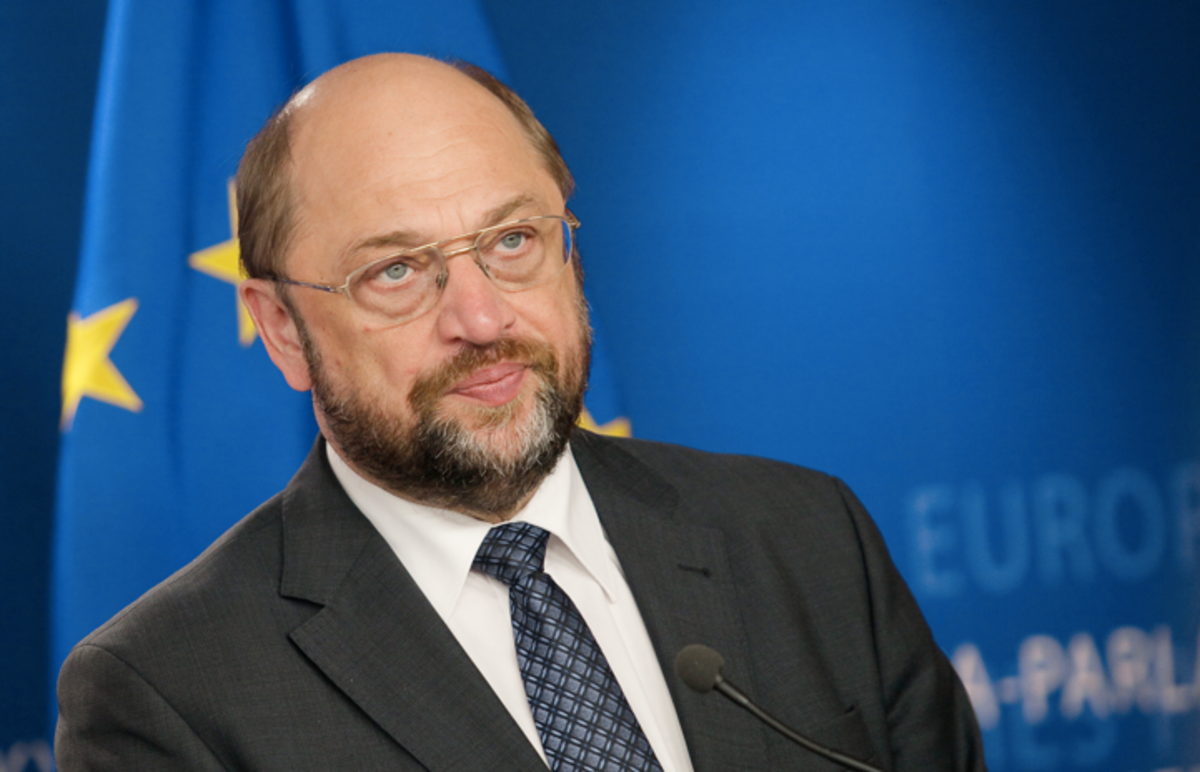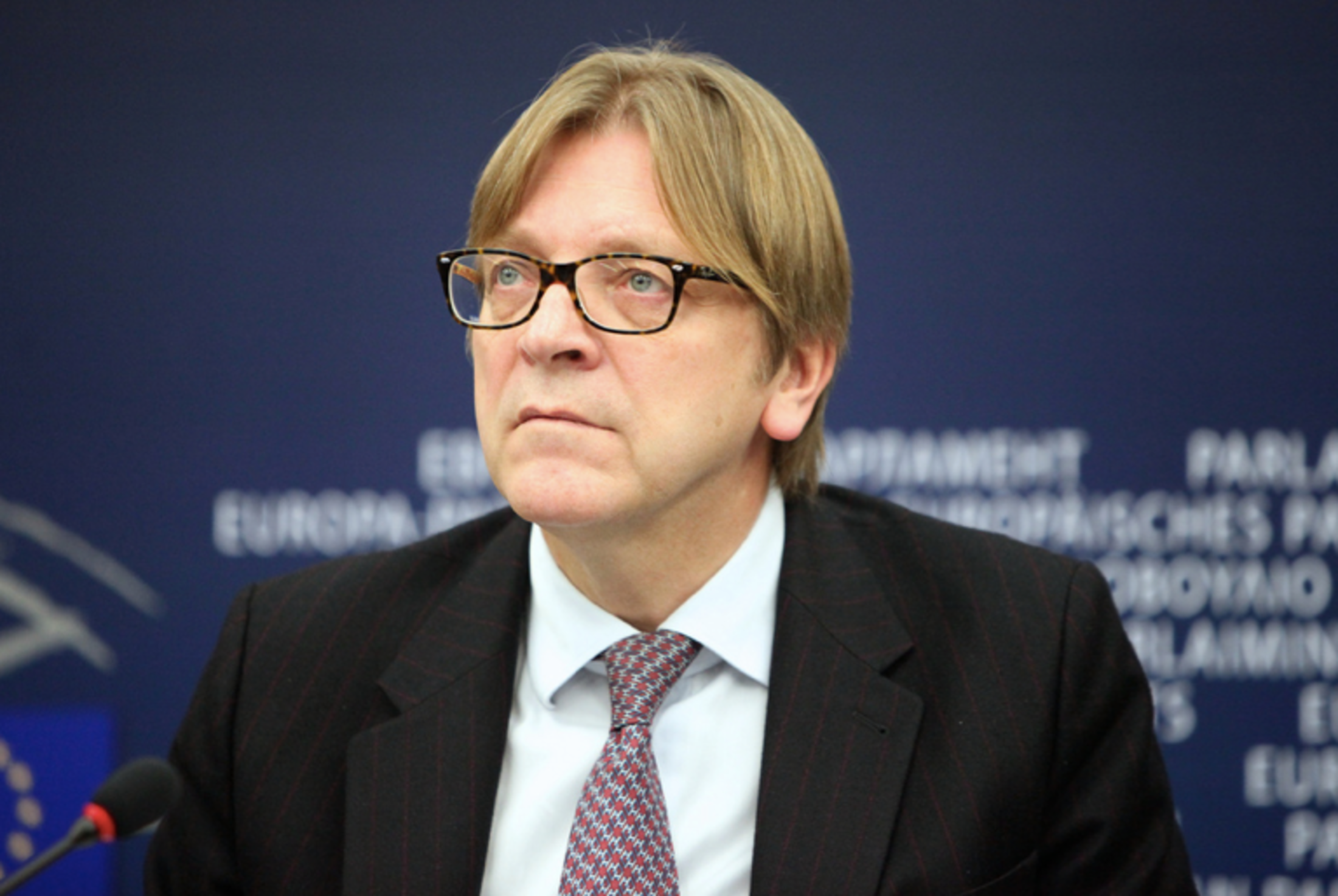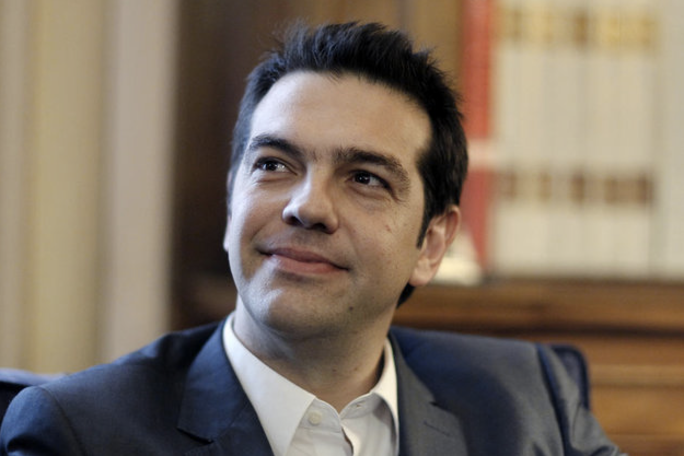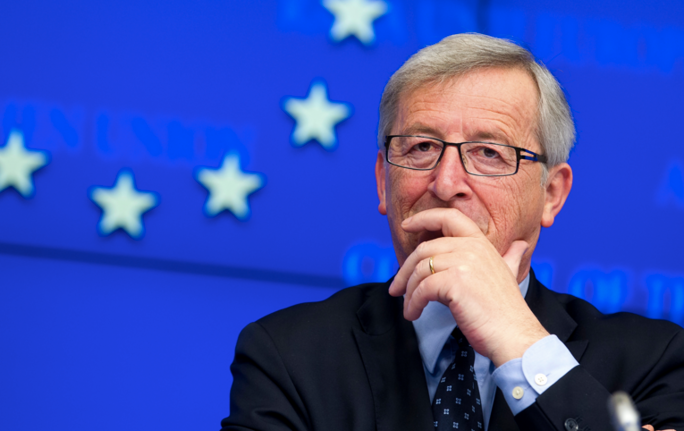Mediapart has questioned the five declared candidates for the presidency of the European Commission (EC) about their views on the increasingly controversial free-trade treaty currently under negotiation between the European Union and the US. This treaty, known as the Transatlantic Trade and Investment Partnership (TTIP), is still being negotiated but already it is attracting criticism over one of the key elements in the deal: the presence of a clause that would allow private companies to demand huge damages from member states if public policy changes adversely affect return on their investments. Largely unknown to the wider public, these are called Investor-State Dispute Settlements, or ISDS. Other key issues over the treaty include the level of protection given to consumers' personal data, and the transparency before the public of the negotiations themselves.
The EC has a crucial role in the negotiations of the TTIP. In 2013 the EU’s member states authorised it to negotiate the treaty on their behalf. In October the current president of the EC, José Manuel Barroso, stands down and for the first time the new president will in effect be elected by the people of Europe; whichever political grouping does best in this month's elections of Members of the European Parliament it will see its nominated candidate become the head of the EU's powerful bureaucratic arm.
The five declared candidates are: German socialist and president of the European Parliament Martin Schulz (Progressive Alliance of Socialists and Democrats), former prime minister of Luxembourg Jean-Claude Juncker from the conservative Right (European People's Party), France's José Bové for the Greens (Group of the Greens/European Free Alliance), Greek politician Alexis Tsipras from the radical Left (Party of the European Left), and former Belgian prime minister Guy Verhofstadt, who represents the centrist Alliance of Liberals and Democrats for Europe.
Each of the candidates was asked the same five questions. Overall, three of the candidates - Juncker, Verhofstadt and Schulz - are broadly in favour of the trade deal, some with a varying degree of reservations. Bové and Tsipras are opposed. All called for greater openness in the negotiations with the exception of Jean-Claude Juncker, who warned against the risk of “showing one's cards” during the talks. All were concerned about the possible dangers on the issue of data protection, while they also pointed out that it would be Euro MPs who would have the final word on the deal in Europe.
As for the issue of an ISDS clause on business/state disputes, there was a clear divergence of opinion. Bové and Tsipras are firmly opposed to such a clause, while Juncker is broadly in favour. For the liberals Verhofstadt does not rule out including such a clause but says he is “not really convinced of the added value of such controversial mechanisms”. Socialist Schulz underlines his opposition to such clauses, in agreement with the German government’s line, though he did not call for the clause to be withdrawn from the EU-US treaty.
The five candidates’ responses are published here in this order: Martin Schulz (page 1), Guy Verhofstadt (page 2), Alexis Tsipras (page 3), José Bové (page 4) and Jean-Claude Juncker (page 5).
Schulz and Juncker responded directly in English. Bové and Verhofstadt replied in French, and Tsipras in Greek, and these are translated here into English.
-------------------------
Martin Schulz (socialists):

Enlargement : Illustration 1

Mediapart: Are you in favour of the ongoing negotiations between Europe and the US for a TTIP?
Martin Schulz: Yes, I am in favour of the negotiations and I am in favour of the potential benefits that these negotiations will bring. A good TTIP has the potential to give a huge boost to the European economy. But to qualify as good, TTIP must meet a number of key criteria. The trade agreement will not come about if it lowers our environmental, consumer protection, social protection and data protection standards. We must also ensure that the process that led to the agreement has been the most transparent of all EU trade negotiations to date. So my efforts as President of the Commission would be not directed not just at reaching an agreement: they will be directed at reaching a fair, symmetric, safe and transparent agreement for the benefit of our citizens.
Mediapart: Do you think the revelations of the US National Security Agency spying scandal are a game changer for these negotiations?
M.S.: The NSA spying scandal was a wake-up call for Europe that it is not just sufficient to have assurances from our partners that agreements will be respected; we also have to have the means and proper legislation in place to ensure that rules are respected. Europe at times likes to label itself as a soft power. To me it seems at times as a naïve power. I intend to change that.
Mediapart: If you become president of the European Commission, what level of transparency will you ensure during these negotiations?
M.S.: Under my direction the next Commission should be accompanied by an advisory group consisting of relevant civil society groups, experts and unions in the framework of the negotiations.
Transparency can and must be improved even further with an even more intensive involvement of civil society and of the European Parliament and by making the negotiating mandate public.
Mediapart: Do you support the inclusion of an ISDS clause within the TTIP, (and about which the European commission has opened an online public consultation project)? What do you think of these ISDS clauses in general?
M.S.: With me as President of the Commission, enterprises will have no right to bring a lawsuit to a secret court at the expense of the welfare of the general public. It's a major obstacle we need to overcome if we want to find a deal.
Mediapart: A similar agreement between Canada and the EU is about to be adopted after years of negotiations. It is expected to be submitted to the European Parliament for approval well before any agreement on the TTIP. Do you support it?
M.S.: The EU is Canada's second most important trading partner, after the United States. Once implemented, CETA would reinforce bilateral trade dramatically, again contributing to growth and job creation. The European Parliament will have to give its final go-ahead to CETA and we have already fleshed-out our position in a resolution on the EU-Canada strategic partnership voted with a large majority in December 2013. The agreement is sound and, barring issues concerning our divergences on the Arctic Council and visa waivers, I broadly support it. But the last word on this agreement rests with the next European Parliament.
Guy Verhofstadt (liberals, centrists):

Enlargement : Illustration 2

Mediapart: Are you in favour of the ongoing negotiations between Europe and the US for a TTIP?
Guy Verhofstadt: As a liberal I can only be pleased at efforts made to reinforce transatlantic trade and investment. The EU and the United States are the pioneering partners of international trade and are the two biggest economic blocs in the world. Independent studies show that a large and ambitious agreement could generate 120 billion euros each year in additional turnover for the EU, in particular thanks to the opening up of the American market to small and medium-sized businesses, which until now has been the preserve of multinationals.
Mediapart: Do you think the revelations of the US National Security Agency spying scandal are a game changer for these negotiations?
G.V.: The cyber-surveillance of Europeans, including their leaders, by the American secret services is a problem that goes well beyond the TTIP, and also and above all poses questions concerning our diplomacy and European defence. That said, I don’t believe that the transatlantic partnership can see the light of day if a robust and veritable agreement is not reached on the protection of personal data on the internet. Many of our fellow citizens are acutely sensitive to this problem and the negotiators should be aware that public opinion will carry great weight in the process of ratification.
Mediapart: If you become president of the European Commission, what level of transparency will you ensure during these negotiations?
G.V.: It's not the Commission that is opposed to the most complete transparency in the negotiations, but the [European] Council, something I deplore. For my part, as president of the Commission, I will not stop until these negotiations are as transparent as possible. Of course I'm well aware that the success of negotiations most involve discreet phases, for compromises can't come out of confrontations that are too public when definitive statements risk compromising the search for a consensus.
Nonetheless, the Commission I will preside over will take all the necessary steps to keep people informed about this, will engage in productive consultations with all interested parties and with civic groups, and remain in constant dialogue with the European Parliament and the national parliaments because, in the end, whatever agreement is negotiated, it has to be ratified, and this requires that the information given to parliamentarians and public opinion is complete and understandable.
Mediapart: Do you support the inclusion of an ISDS clause within the TTIP, (and about which the European commission has opened an online public consultation project)? What do you think of these ISDS clauses in general?
G.V.: I am of course happy that a subject of this importance is the object of public consultation even if I regret that the parliamentary recess stops this [European] parliament and the one that follows it from taking part in it. I don't rule out in principle including mechanisms to protect investments in the future treaty, to protect European businesses from unfair treatment in the United States.
But I am not really convinced of the added value of such controversial mechanisms when our two legal systems, on either side of the Atlantic, are based on the rule of law that is robust and predictable and where all appeal procedures already exist. In any case, while investments must clearly be protected, that cannot be at the price of calling into question the sovereign right of the EU and its member states to legislate independently.
Mediapart: A similar agreement between Canada and the EU is about to be adopted after years of negotiations. It is expected to be submitted to the European Parliament for approval well before any agreement on the TTIP. Do you support it?
G.V.: It's a long-awaited agreement which should be a great opportunity for European businesses, especially in agri-food services where there are still some significant restrictions. For example, with dairy products such as cheese the Canadian market today is very protected. I'm very confident about the outcome of this agreement which goes beyond trade and deals with investments, intellectual property and public sector markets.
In this sense there's some comparison with the agreement signed with South Korea which, after being in force for two years, resulted in a complete turnaround in our trade balance, with European exports up by 24% and Korean imports down by 6%. But clearly to benefit from free trade you have to be competitive and I should note that the only two countries with a trade deficit in the eurozone are France and Greece; the others, with the same euro, are all in surplus.
Alexis Tsipras (radical-left):

Enlargement : Illustration 3

Mediapart: Are you in favour of the ongoing negotiations between Europe and the US for a TTIP?
Alexis Tsipras: First of all it is unacceptable that these negotiations are taking place in secret. As a matter of principle the Left is opposed to any kind of opaque procedure where the citizens do not know what's going on.
But on the content, all that has filtered out about these negotiations between the European Union and the United States on the subject of the the transatlantic treaty, shows that it is still an attempt to submit politics and citizens' interests to the diktats of the multinationals.
Mediapart: Do you think the revelations of the US National Security Agency spying scandal are a game changer for these negotiations?
A.T.: At the moment the great informal coalition at the heart of the EU, the Christian democrats and the socials democrats, is doing all to can to make people forget about the NSA's eavesdropping, even though the most famous victim of it was [the German] chancellor [Angela] Merkel, whose mobile phone was tapped. Obviously the insistence of the United States on observing the telephonic communications and the electronic correspondence of European citizens – and businesses – should keep the Europeans on alert.
Mediapart: If you become president of the European Commission, what level of transparency will you ensure during these negotiations?
A.T.: A rule that cannot be broken for a president of the Left at the head of the European Commission is to have complete transparency in all negotiations.
Mediapart: Do you support the inclusion of an ISDS clause within the TTIP, (and about which the European commission has opened an online public consultation project)? What do you think of these ISDS clauses in general?
A.T.: It is precisely this clause that is the biggest problem in the agreement on the transatlantic treaty. In essence this clause, which you could define as 'the investor’s interests dictate the law' harms democracy and national sovereignty. Progress in society and also the possibility of carrying out alternative policies are sacrificed on the altar of supporting business speculation. It's a political, not an investment clause. It endeavours to brush aside stricter environmental laws, rules on public health and food security, improvements in workplace legislation, the renationalisation of assets such as water and electric energy and even improvements in workers' salaries by using arbitration. And by an arbitration that is not even subject to any democratic and public oversight.
We can already see the consequences of investor protection clauses that exist in bilateral trade deals. According to the investigation 'Profiting from Crisis: How corporations and lawyers are scavenging profits from Europe’s crisis countries' carried out by two NGOs – the Corporate Europe Observatory and the Transnational Institute - investors are taking legal action against European countries for losses caused by the measures taken against the [eurozone] crisis, many of which [measures] were not decided by the countries themselves but by the 'Troika' [Editor's note: the International Monetary Fund, the European Central bank and the European Commission who intervened in member states in crisis]. According to this investigation the damages already claimed from countries in crisis is 1.7 billion euros.
If one includes an ISDS clause in a multilateral agreement such as the transatlantic treaty the investors will have even more power.
Mediapart: A similar agreement between Canada and the EU is about to be adopted after years of negotiations. It is expected to be submitted to the European Parliament for approval well before any agreement on the TTIP. Do you support it?
A.T.: We are still waiting for the outgoing Commission to make the content of this accord public. According to what has filtered out about this agreement, the investors protection clause is included in it. What's more, we have a well-founded suspicion that the agreement with Canada is not only a test – secret, I repeat – for the transatlantic treaty, but also a gap opened through which to pass rules and regulations eventually excluded from the transatlantic treaty. It's characteristic that comrades from Die Linke [Editor's note: the German party The Left, which is aligned with the European Party of the European Left] didn’t received a response when they formally asked the German government, in their parliament, about the possibility of an American business with a Canadian subsidiary appealing to the [ISDS] protection clause in the EU even if that clause isn't included in the transatlantic treaty.
José Bové (Greens):

Enlargement : Illustration 4

Mediapart. Are you in favour of the ongoing negotiations between Europe and the US for a TTIP?
José Bové: Since the beginning of the 1990s I have been fighting the deregulation of trade exchanges imposed by the World Trade Organization, because its logic places world trade as an end in itself and refuses to take into account social and environmental regulations. Today, the WTO is blocked, principally by the issue of agriculture. So the major powers, and in particular the United States and the European Union, get around the obstacle by imposing a new generation of very exhaustive bilateral agreements on free trade.
The Transatlantic Free Trade Area is the latest manifestation of this. It is an unhealthy project, which directly threatens our collective choices, above all on the issue of food. For customs tolls on industrial products are practically nothing today – all that’s left are the environmental and social norms of production. So it is European agriculture which will serve as the bargaining chip. For example, American companies want to export to Europe their bovine meat which has been raised on hormones. That would be the ruin of thousands of European cattle farmers who raise their animals with grass. The mountain regions would be particularly affected. The protected designations of origin [appellations d’origine contrôlées] are also in danger.
Fortunately, there is opposition on both sides of the water. In the United States, numerous organizations in civil society are fiercely opposed to the opening of these negotiations which threaten progressive legislation like the ‘Buy American’ Act which allows for a relocation of the economy.
Mediapart: Do you think the revelations of the US National Security Agency spying scandal are a game changer for these negotiations?
J.B.: They invalidate them. How can you negotiate with a partner who overtly cheats? What’s more, the NSA espionage isn’t limited to listening in on Europe’s political decision-makers. Industrial espionage is also the reality. I find it hard to believe that European companies working in innovative fields are not also closely watched over. We need a far-reaching parliamentary enquiry before resuming eventual negotiations.
Mediapart: If you become president of the European Commission, what level of transparency will you ensure during these negotiations?
J.B.: Transparency must be total and the European Commission must involve and consult all the interested parties. For the moment, it has an unfortunate tendency to take into account only those opinions and wishes expressed by the boards of major corporations. As an ‘alternate’ member of the European Parliament Committee on International Trade, I don’t even have access to the documents presented by [European] commissioner [for Trade] De Gught, who must inform the European Parliament about the progress of the negotiations. Transparency ends at the doors of the ‘coordinators’ of the different parliamentary groups, amounting to seven people in all and for all. They are barred, furthermore, from communicating the information.
Mediapart: Do you support the inclusion of an ISDS clause within the TTIP, (and about which the European commission has opened an online public consultation project)? What do you think of these ISDS clauses in general?
J.B.: This mechanism of arbitration between investors and states is a danger for democracy and public policy-making. It gives big corporations the opportunity to attack laws and regulations which, according to them, would have a negative impact on the return from their investments, the profits, that they counted upon. For example, [French utilities company] Veolia did not hesitate to attack the Egyptian government when it raised the minimum wage. The American [oil and gas exploration] firm Low Pine calls into question the moratorium on hydraulic fracturing and demands 250 million dollars in compensation.
Made up of three international judges, these arbitration courts function in the utmost secrecy. Their decisions cannot be appealed against. I do not understand how politicians can thus tie their hands together by accepting ISDS. The European Commission finally understood the problem. It decided to open a public consultation until the end of June 2014. But if it thinks that it has locked this debate in the cupboard for the length of the European election campaign it has made a big mistake. We’re heading for ‘Tapie affairs’ on a global scale.
Mediapart: A similar agreement between Canada and the EU is about to be adopted after years of negotiations. It is expected to be submitted to the European Parliament for approval well before any agreement on the TTIP. Do you support it?
J.B.: I am opposed to the ratification of a free trade agreement with Canada for the same reasons. Rather than heading further into the impasse that is blind free marketeering, the EU has everything to gain from suggesting to the United States and Canada the establishment of a transatlantic agreement to fight tax evasion. Because multinationals use every existing crack and inventcomplex procedures for paying as little tax as possible. We cannot accept that certain countries – Ireland, the Netherlands and Luxembourg – and some North American states – like Delaware – act against the common interest.
Jean-Claude Juncker (conservatives):

Enlargement : Illustration 5

Mediapart: Are you in favour of the ongoing negotiations between Europe and the US for a TTIP?
Jean-Claude Juncker: Together, the EU and the US represent 50% of world GDP and one third
of world trade. An EU-US trade agreement would mean 1.8 billion euros worth of goods and services will be traded every day. This would mean a 0.5% increase in EU GDP by 2027. This would mean EUR 120 billion more in GDP each year for the real economy – that’s an additional 545 euros per year for every European family ! So, yes, I am in favour of the ongoing negotiations, notably for the abolition of outdated customs duties between the EU and the US. However, it is also very clear for me that European standards as regards food safety, environmental norms, the protection of personal data, social standards and cultural diversity are non-negotiable. Notably, Europe’s fundamental consumer protection laws must be preserved.
Mediapart: Do you think the revelations of the US National Security Agency spying scandal are a game changer for these negotiations?
J-C.J.: First of all, it must be clear that close partners – as the EU and the US want to become with the very ambitious trade negotiations – do not spy on each other. In addition, the revelations of mass surveillance of EU citizens by the NSA have shown that we have a very different understanding about data protection and privacy on each side of the Atlantic. For me, the result of this is that data protection cannot form part of the negotiations on an EU-US free trade agreement. We should also not forget that there are, since three years, separate negotiations ongoing on an EU-US data protection agreement in the field of law enforcement.
I would first want to see concrete and ambitious results in these negotiations to start creating a first common minimum basis in the field of data protection between the EU and the US. I also believe that we should wait for the outcome of the current legislative changes both in Europe and in the US regarding data protection and privacy. Once the US has adopted new privacy legislation, which will give the same rights to EU citizens as to US citizens, regardless where they are resident, I would see the time as ripe for starting to talk about transatlantic standards in this field. But there is still a long way to go until we have reached this stage, and I am very realistic about this. Europe will for many years continue to be the standard-setter in data protection and privacy, and we should be proud about this strong reflection of European values.
Mediapart: If you become president of the European Commission, what level of transparency will you ensure during these negotiations?
J-C.J.: We have to strike the right balance between transparency for the public and not laying all our cards on the table for the other party, in the middle of a negotiation. There is already a high level of transparency in the negotiation of bilateral trade agreements, with the Commission holding public consultations and civil society dialogues before the start of negotiations. The Commission even publishes draft agreements for public debate before they are adopted – this should be maintained.
We should also keep in mind that under the EU treaties, no trade agreement can be concluded without the consent of the European Parliament. This has led to a strong involvement of many Members of the European Parliament in the trade talks and to regular contact and debriefings with the European Commission. Europe’s directly-elected representatives therefore have a decisive say on the outcome of the negotiations. This underlines again the importance of the European Parliament elections on 22-25 May. All citizens who are interested in or concerned about the trade talks, should make use of their right to vote, to ensure that competent, active Parliamentarians will represent them in Brussels when it comes to the transatlantic trade agreement.
Mediapart: Do you support the inclusion of an ISDS clause within the TTIP, (and about which the European commission has opened an online public consultation project)? What do you think of these ISDS clauses in general?
J-C.J.: If we can get the balance right, an investor-state-dispute settlement provision in the EU-US trade agreement could be a major step forward in creating a new, improved type of investment agreement. This would make sure that governments can make policy in the public interest while still providing for investment protection. That is a valuable goal in my opinion. However, while I believe that dispute settlement provisions can be useful, they must never exclude access of citizens to the ordinary courts.
Mediapart: A similar agreement between Canada and the EU is about to be adopted after years of negotiations. It is expected to be submitted to the European Parliament for approval well before any agreement on the TTIP. Do you support it?
J-C.J.: Canada is the EU's eleventh most important trading partner whereas the EU is Canada’s second-largest trading partner, after the United States. Negotiations for an EU-Canada Trade Agreement started in May 2009 and are now in their final phase, after a balanced compromise on all key issues could be found that notably preserves European standards and values. The agreement could
increase our bilateral trade by another 25.7 billion euros and could thus be very beneficial to us. However, the final approval of the agreement is now with the European Parliament and the national Parliaments of the 28 EU Member States. It is their democratic assessment that in the end will decide whether European citizens will get the benefits of this new partnership with Canada, which I sincerely hope for.
-------------------------
- The French version of this series of interviews can be found here.
-------------------------
English version by Michael Streeter (with Graham Tearse).


